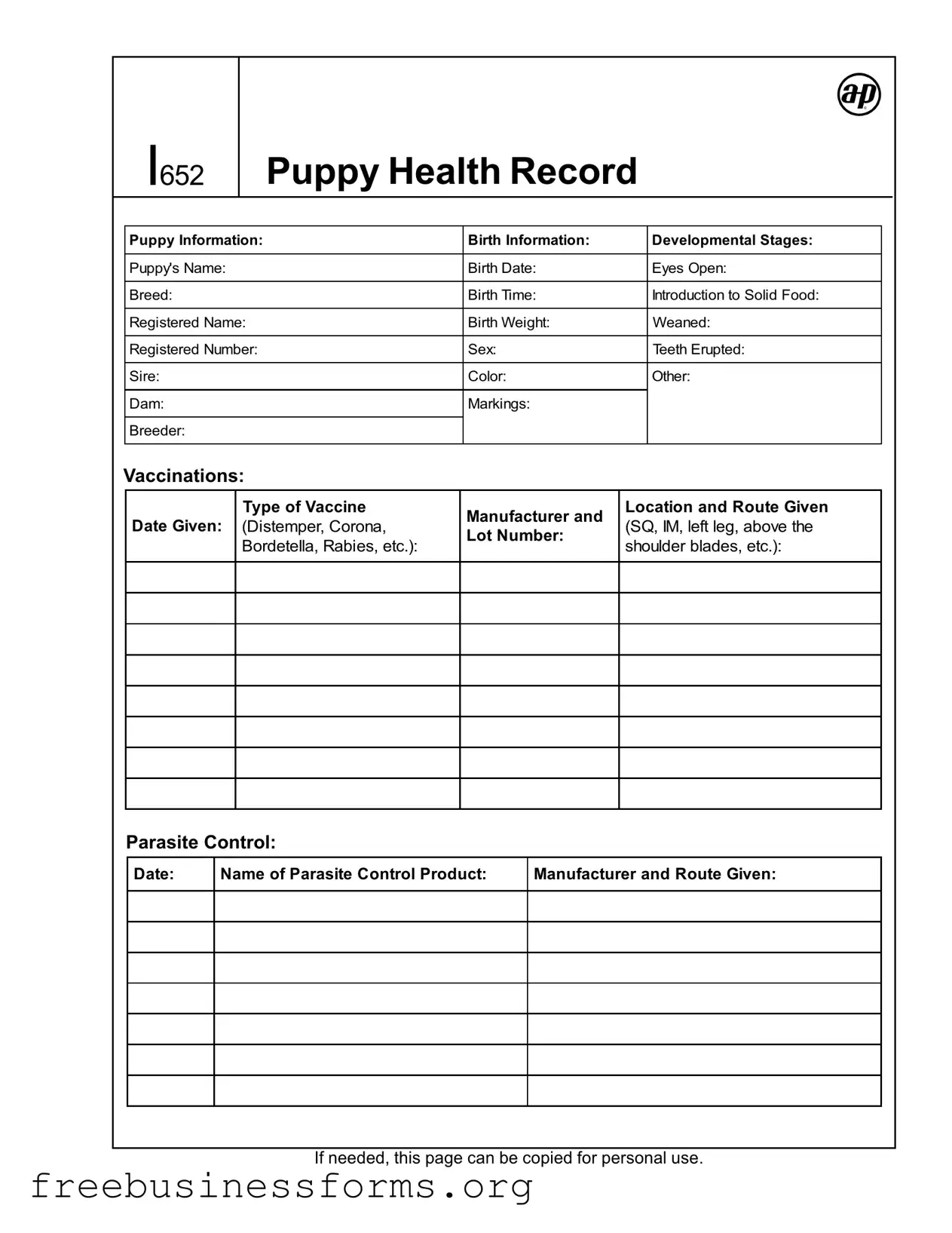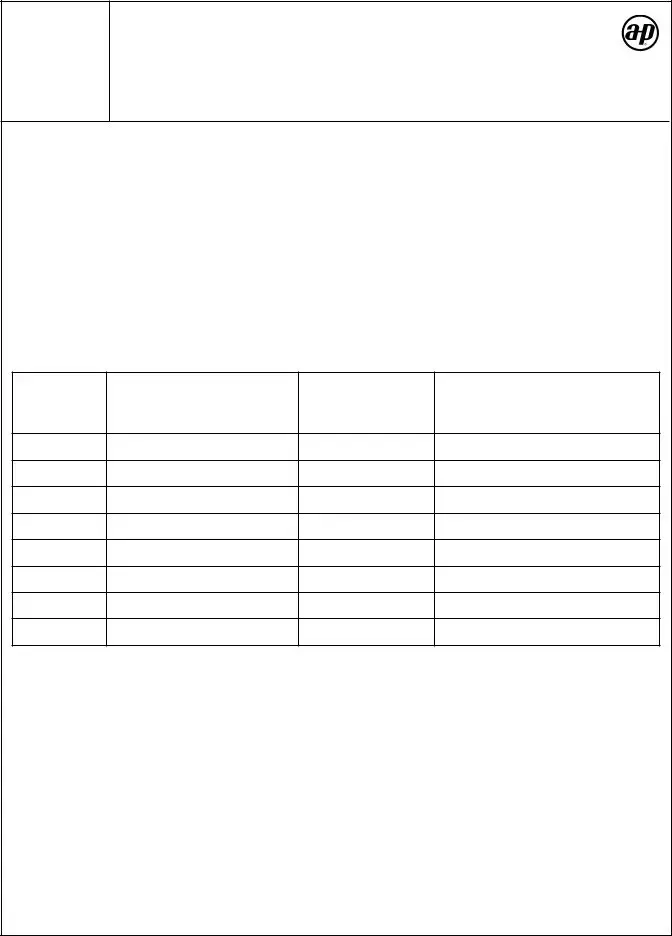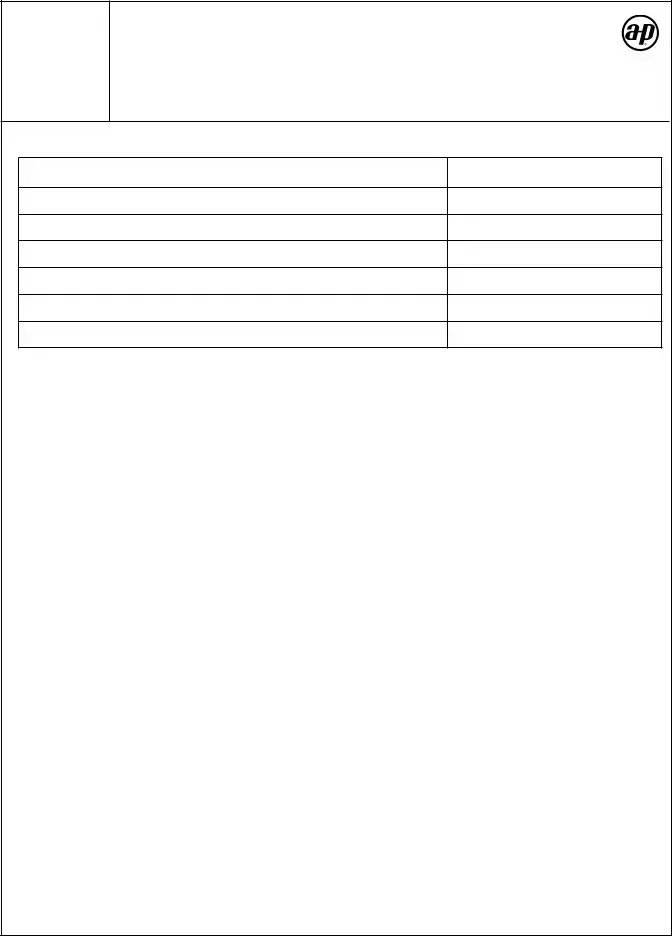Official Puppy Health Record Form in PDF
The Puppy Health Record form is a comprehensive document designed to track a puppy's health and development from birth to spaying or neutering. It includes essential information such as vaccination dates, birth details, and developmental milestones. Keeping this record helps ensure that your puppy receives the necessary care and vaccinations at the appropriate times.
Open Form Here

Official Puppy Health Record Form in PDF
Open Form Here

Open Form Here
or
↓ PDF File
Quickly complete this form online
Complete your Puppy Health Record online quickly — edit, save, download.

